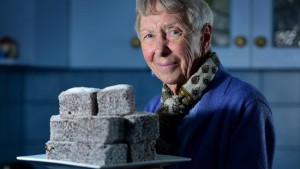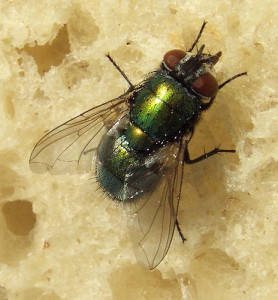At the end of April 2016, South Australia Health’s chief medical officer Paddy Phillips said after an outbreak of Salmonella Saintpaul linked to sprouts sickened over 300, “This business was completely compliant with all our investigations and there is no reason to believe there are any further issues with the production of bean sprouts at this factory.”
 This is the factory (right, exactly as shown). I keep saying it’s like 1978 here, and there’s probably a VW microbus out back loaded with Salmonella-infectd sprout plants.
This is the factory (right, exactly as shown). I keep saying it’s like 1978 here, and there’s probably a VW microbus out back loaded with Salmonella-infectd sprout plants.
Today, SA Health is once again urging the public to throw out their bean sprouts after a dramatic surge in salmonella cases and discovery of the dangerous bacteria in packaged sprouts sold by Thebarton producer Star Tu — the second time it has been detected at the producer this year.
Officials have ordered Star Tu to recall all of its products and stop selling immediately after Salmonella Saintpaul samples were found in packaged bean sprouts.
A packager of Star Tu products, Sunshine Sprouts, has also been ordered by SA Health to stop selling any products containing Star Tu mung bean sprouts.
SA Health chief public health officer Professor Paddy Phillips said the public should either throw out their bean sprouts or return them to the place of purchase.
Since the start of last December there have been 271 cases of confirmed Salmonella Saintpaul notified to SA Health resulting in 47 people being admitted to hospital.
South Australia usually sees around 15 to 20 cases each year.
 “Our investigations then led us to the Star Tu factory and we found a positive Salmonella sample taken from a piece of equipment. Once this was cleaned and further inspections took place there was no evidence indicating any further risk.
“Our investigations then led us to the Star Tu factory and we found a positive Salmonella sample taken from a piece of equipment. Once this was cleaned and further inspections took place there was no evidence indicating any further risk.
Dumbass.
Finding Salmonella on a piece of equipment in no way provides confidence that the problem has been solved and shows a complete lack of knowledge of how raw sprouts become contaminated at seed.
But that’s why Paddy gets the big bucks.
“Yesterday it was confirmed that since these investigations, five sealed bags produced by Star Tu were contaminated with Salmonella, and given this new evidence we have issued this factory with an order to recall and stop selling. We are also today advising South Australians to either throw out their bean sprouts or return them to the place of purchase and we are recalling all products that have come from this factory.
Li Tu, whose family owns the Star Tu business, said it had been “growing and distributing high quality bean sprouts for over 20 years”.
“As well as meeting SA Health standards, we also have had robust food safety programs since 1999 with annual checks and inspections,” he said.
 “Our factory was described as being as clean as a hospital by one of SA Health’s employees.
“Our factory was described as being as clean as a hospital by one of SA Health’s employees.
“We’re obviously not in the business of making people sick so we do not take this matter lightly. We are working closely with SA Health to find the source of the problem.”
Bullshit.
Raw sprouts are an unnecessary health hazard. But they are happily served up at hospitals and aged-care facilities and other places where the immunocompromised can be found in oblivious Australia.
An updated table of raw sprout related outbreaks is available at: https://barfblog.com/wp-content/uploads/2016/04/Sprout-associated-outbreaks-4-27-16.xlsx
Never underestimate the power of denial.
Erdozain, M.S., Allen, K.J., Morley, K.A. and Powell, D.A. 2012. Failures in sprouts-related risk communication. Food Control. 10.1016/j.foodcont.2012.08.022
http://www.sciencedirect.com/science/article/pii/S0956713512004707?v=s5
Nutritional and perceived health benefits have contributed to the increasing popularity of raw sprouted seed products. In the past two decades, sprouted seeds have been a recurring food safety concern, with at least 55 documented foodborne outbreaks affecting more than 15,000 people. A compilation of selected publications was used to yield an analysis of the evolving safety and risk communication related to raw sprouts, including microbiological safety, efforts to improve production practices, and effectiveness of communication prior to, during, and after sprout-related outbreaks. Scientific investigation and media coverage of sprout-related outbreaks has led to improved production guidelines and public health enforcement actions, yet continued outbreaks call into question the effectiveness of risk management strategies and producer compliance. Raw sprouts remain a high-risk product and avoidance or thorough cooking are the only ways that consumers can reduce risk; even thorough cooking messages fail to acknowledge the risk of cross-contamination. Risk communication messages have been inconsistent over time with Canadian and U.S. governments finally aligning their messages in the past five years, telling consumers to avoid sprouts. Yet consumer and industry awareness of risk remains low. To minimize health risks linked to the consumption of sprout products, local and national public health agencies, restaurants, retailers and producers need validated, consistent and repeated risk messaging through a variety of sources.

 Ultimately 58 people were sickened and health types linked the outbreak to a raw egg butter being served with Vietnamese rolls from three bakeries all owned by Angkor Bakery.
Ultimately 58 people were sickened and health types linked the outbreak to a raw egg butter being served with Vietnamese rolls from three bakeries all owned by Angkor Bakery.











